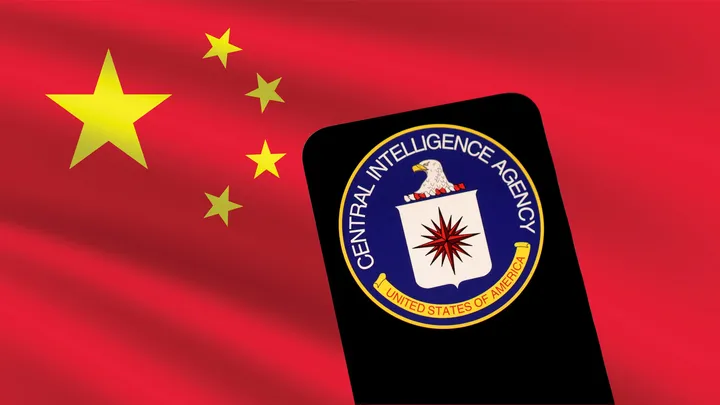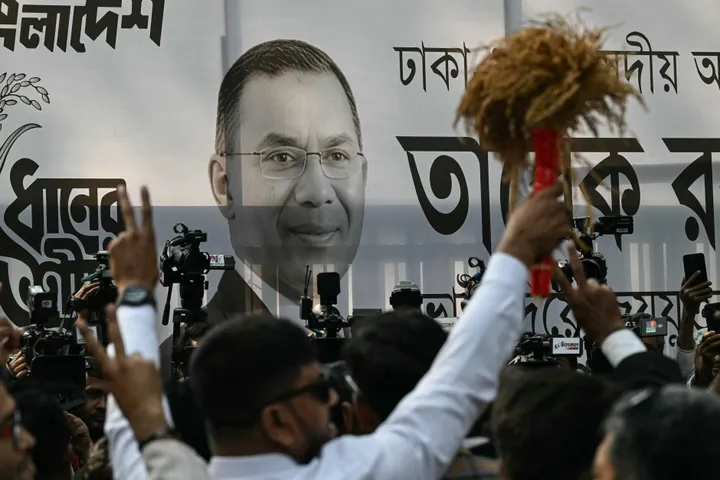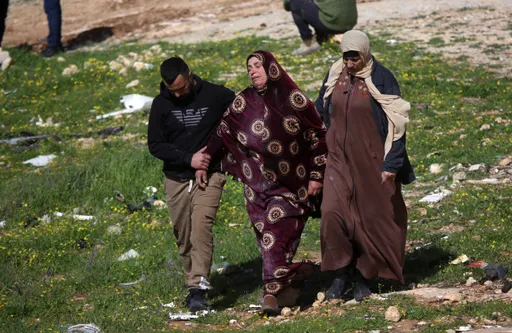Since the beginning of the civil war in 2011, Turkey has opposed the Syrian regime’s brutal crackdown against opposition forces, who had been largely peaceful until regime leader Bashar al Assad’s bloody intervention.
But a civil war ensued and Iran and Russia joined forces on the side of the Assad regime, securing its survival.
Meanwhile, the country’s predominantly Kurdish-populated northeastern territories have been taken over by the YPG, the Syrian wing of the PKK, which has become the backbone of the SDF, a US-backed militia alliance.
The PKK, recognised as a terrorist organisation by Turkey, the US, and NATO, is responsible for a three-decade terror campaign against Ankara, leading to tens of thousands of deaths.
Ankara, which had friendly relations with Damascus before the war, has increasingly been disturbed by both the expansion of the YPG-led SDF militants across northern Syria, along its border, and the domination of Al Qaeda-type armed groups over larger opposition forces.
Both threats have increased the likelihood that Syria could be fragmented into separate parts, forcing Damascus and Ankara to find a consensus on the future of the country.
Despite many disagreements, after an eight-year war, both Damascus and Ankara appear to agree on one particular issue, which is the integrity of the country, urgently seeking to find a way to end the war and redevelop broken relations.
Iran’s Foreign Minister Mohammad Javad Zarif, who held lengthy discussions with Assad and his top officials before his visit to Turkey, was recently in Ankara, presenting his ‘report’ to Turkish President Recep Tayyip Erdogan about his meetings with the Syrian regime.
“It’s difficult for both Turkey and Syria to speak each other in a direct fashion [at the moment]. Iran appears to be the country playing a mediation role between the two countries,” said Cevat Ones, the former deputy director of the Turkish national intelligence agency.
In order to keep the political situation under control, “developing ties with Syria is clearly an urgent need,” according to Ones.
The former top intelligence official believes that during the recent Zarif-Erdogan meeting, both sides discussed crucial issues ranging from establishing direct relations between Damascus and Ankara to the mechanisms of Turkey’s large Syrian refugee population and its return to Syria.
“They have probably discussed how to build the basis of direct relations,” Ones told TRT World.
Osman Bostan, a Turkish political analyst, believes that with the recent visit, Tehran wants to develop regional cooperation between Turkey, Iran and Syria to defend its interests across the Middle East.
He said that Iran is making a move on the Syrian chessboard to signal to Ankara that if it works with Iran in Syria, the reward could be the end of the YPG rule.
The YPG, which runs one-third of Syria, where most of the country’s oilfields and two biggest dams are located, is a headache for both Turkey and Syria. It seems that, more than anything else, the YPG question has been facilitating the rapprochement between Ankara and Damascus.
The federalism debate
Ones believes that Turkey wants to develop a common understanding with the Syrian regime over how to handle the YPG issue. The YPG has established ‘cantons’, or autonomous regions, across northern Syria, defending federalism for the country’s future.
Washington, which backs the YPG, supports federalism. Moscow has been giving mixed signals about federalism, but also appears to support a kind of federalism.
“Turkey does not want a federal Syria,” Bostan said. The Assad regime has also publicly opposed any form of federalism until now.
Bostan thinks Zarif might have come to Ankara with a proposition from Assad along the lines of “let’s choke [the YPG] altogether”. However, Bostan views serious risks for joint future action against the YPG.
At the same time, in northern Syria, Turkey has been dealing with unwavering US support for the YPG. Washington has changed its position concerning Syria frequently under the administration of President Donald Trump.
In December, in the face of an imminent Turkish military threat to enter northeastern Syria to rid of the YPG from the region, Trump announced a quick withdrawal, which has still not happened four months on.
Since then, Washington has been talking about forming a safe zone, which will be monitored by international observers, to keep the YPG away from the Turkish border. But Turkey insists on sole control of the safe zone.
The most recent update on the issue has come from James Jeffrey, the coordinator of the US-led anti-Daesh coalition, during a conference on American-Turkish relations.
"And we would work with Turkey to ensure that that zone remains free of any threat to Turkey and introduces stability," Jeffrey said.
But he also defended Washington’s current approach toward the YPG saying: "The United States also has its own security concerns, including with the people that we fought with against Daesh [the YPG]."
“For imperialists, [the YPG] is an important political instrument,” Ones said in a previous interview, referring to the creation of a Kurdish-dominated autonomous region. This would likely mirror the autonomous Kurdish region, which is called as Kurdistan Regional Government (KRG), carved out in northern Iraq in the 1990s, soon after the first Gulf War.
One of TRT World’s sources, who also participated in the same conference as Jeffrey, also confirmed Ones’ account, saying that Washington has come with a proposition to Turkey to accept a Kurdish autonomous region in northern Syria overseen by the YPG, which will allegedly be a separate entity from the PKK.
The source also mentioned that Americans regard the YPG structure as the basis of Syria’s theoretical future Kurdistan Regional Government (KRG).
“The US envisions a safe zone without both Turkish forces and the YPG,” Ones said.
Americans have plans that the zone could be monitored by either the US and its allies or Washington’s Arab allies such as UAE and Saudi Arabia, according to Ones.
“Turkey does not look positive to such a proposition,” Ones concluded.























